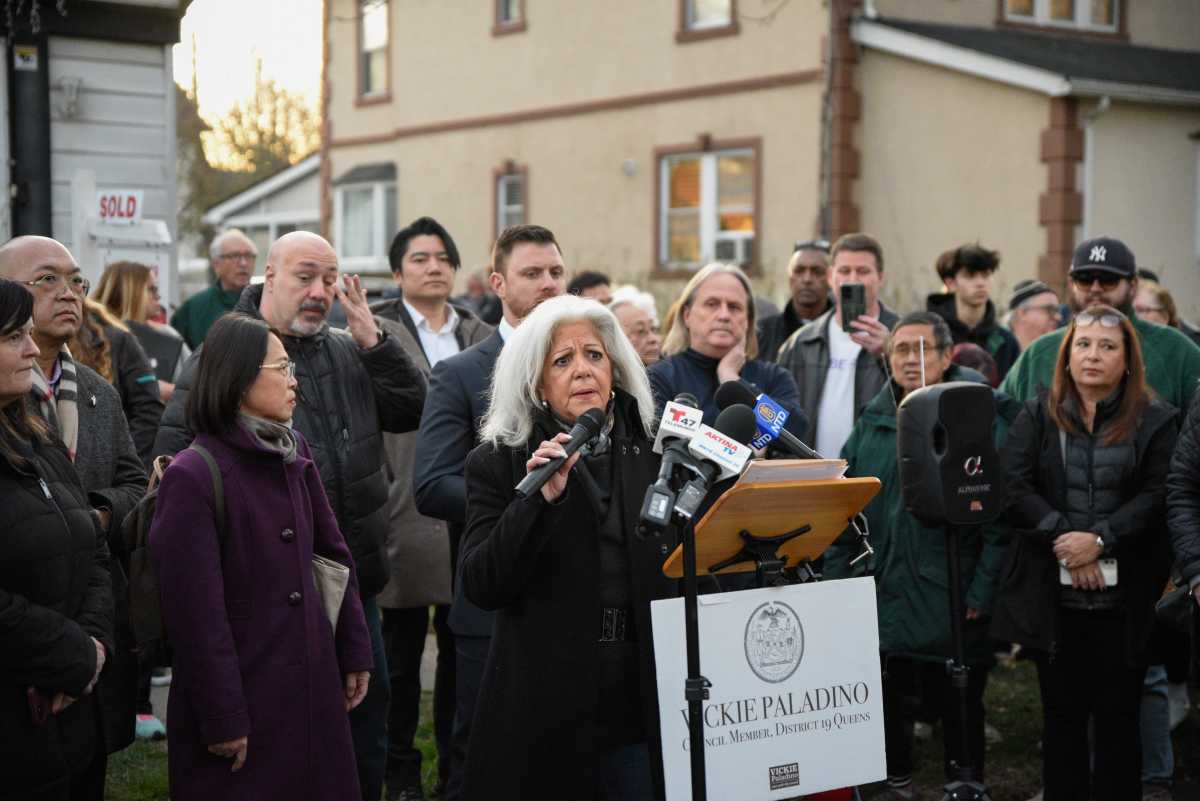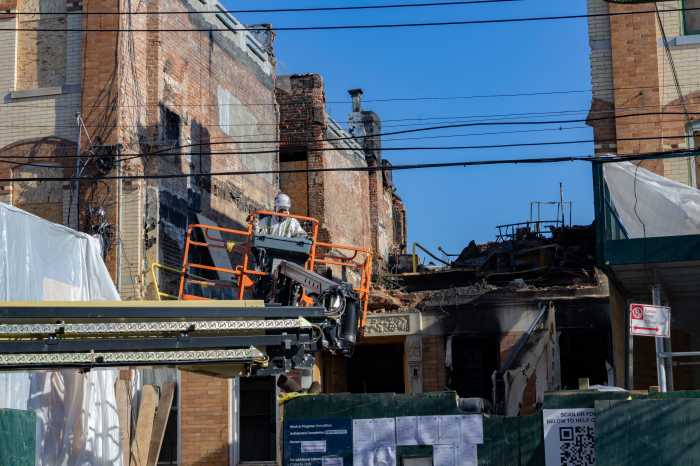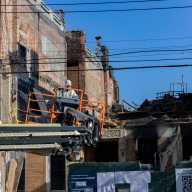Dozens of local residents flocked to a Bayside home earlier this week in support of the property owner who says squatters have taken control of her house and are preventing her from selling the property.
The large crowd, which resulted in the NYPD temporarily closing off a block of 218th Street on Monday evening, came at the call of Council Member Vickie Paladino. Given the rise of similar squatter cases in Queens, she announced that she is working on drafting legislation to change the length of time that squatters have to gain tenants’ rights and protections.
In New York State, squatters can claim tenants’ rights after only 30 days of living in the space without needing proof of a lease. At the rally, Paladino proposed extending the law to 180 days to allow the property owners more time to sort out legal proceedings in the court system, which is prone to delays.
“Thirty days does not give a property owner enough time to go through the legal moves that they need to go through to get a person evicted,” said Paladino to the crowd outside of the home where squatters are occupying.
The house on 218th Street legally belongs to Susan Weir, who inherited it from her mother after she passed away. She says the multifamily house has been in the family since 1961. But in the past few years, a group of people have taken control, committed financial crimes without repercussions and left her feeling helpless.
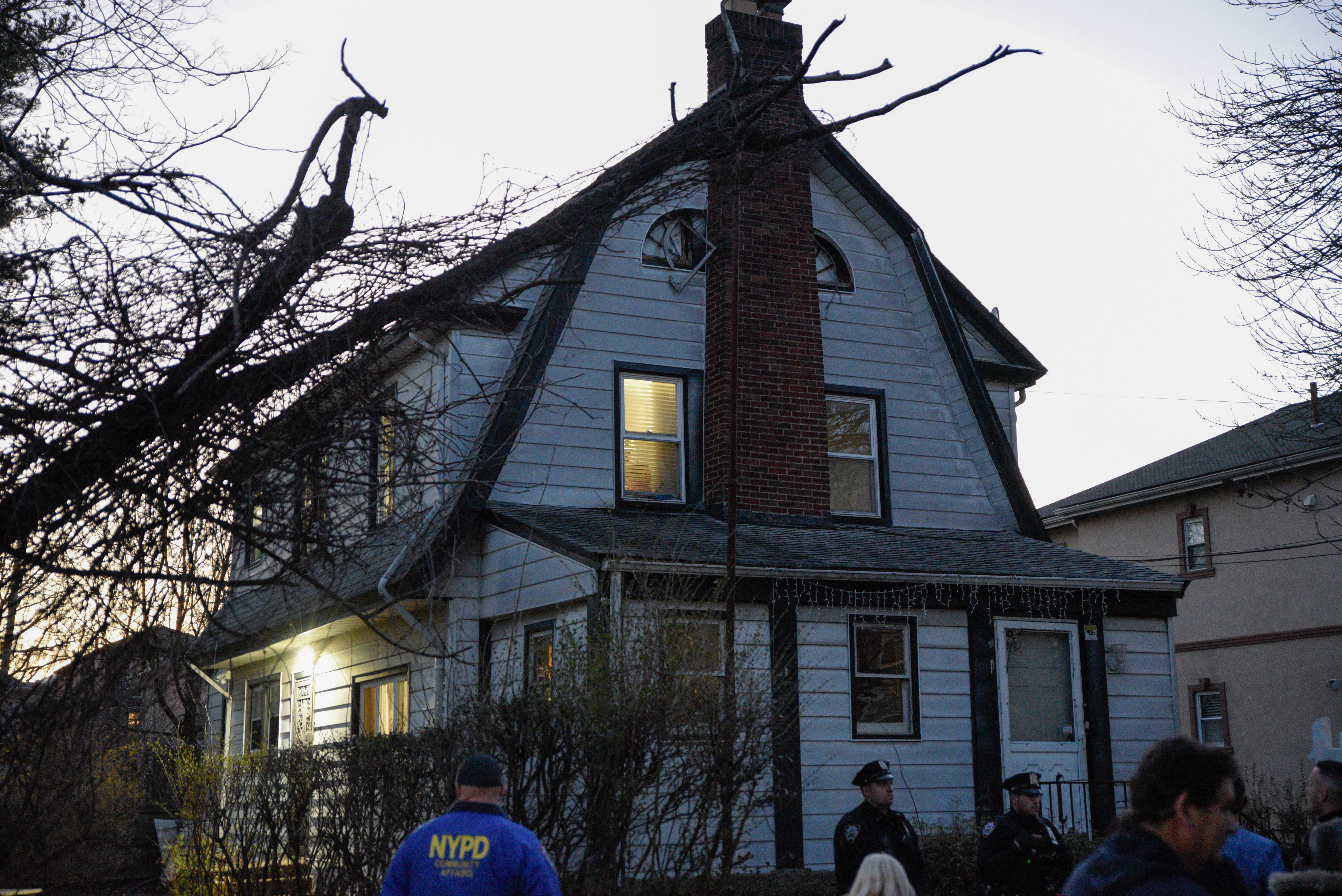
Unlike other squatter stories where vacant homes are entered and claimed, Weir says she offered up an apartment in her mother’s house as a place for a man to live after meeting him while she was working at a local restaurant. And up until her mother’s death, he paid an unspecified amount in rent for what she referred to as a one bedroom in the house with her mother still living there.
The man, however, invited his siblings and eventually others to live in the house.
“He had a plight that he needed somewhere to live. And I thought that mom had finally found someone to take care of her,” said Weir. “Not realizing that mom had early onset dementia, and instead of taking care of her they were draining and abusing her.”
She later learned that the squatters racked up $15,000 in charges in 2020 on her mother’s credit card and forced her to commit fraud by reporting the card stolen. She added that the squatters owed Con Edison over $2,000 for utilities.
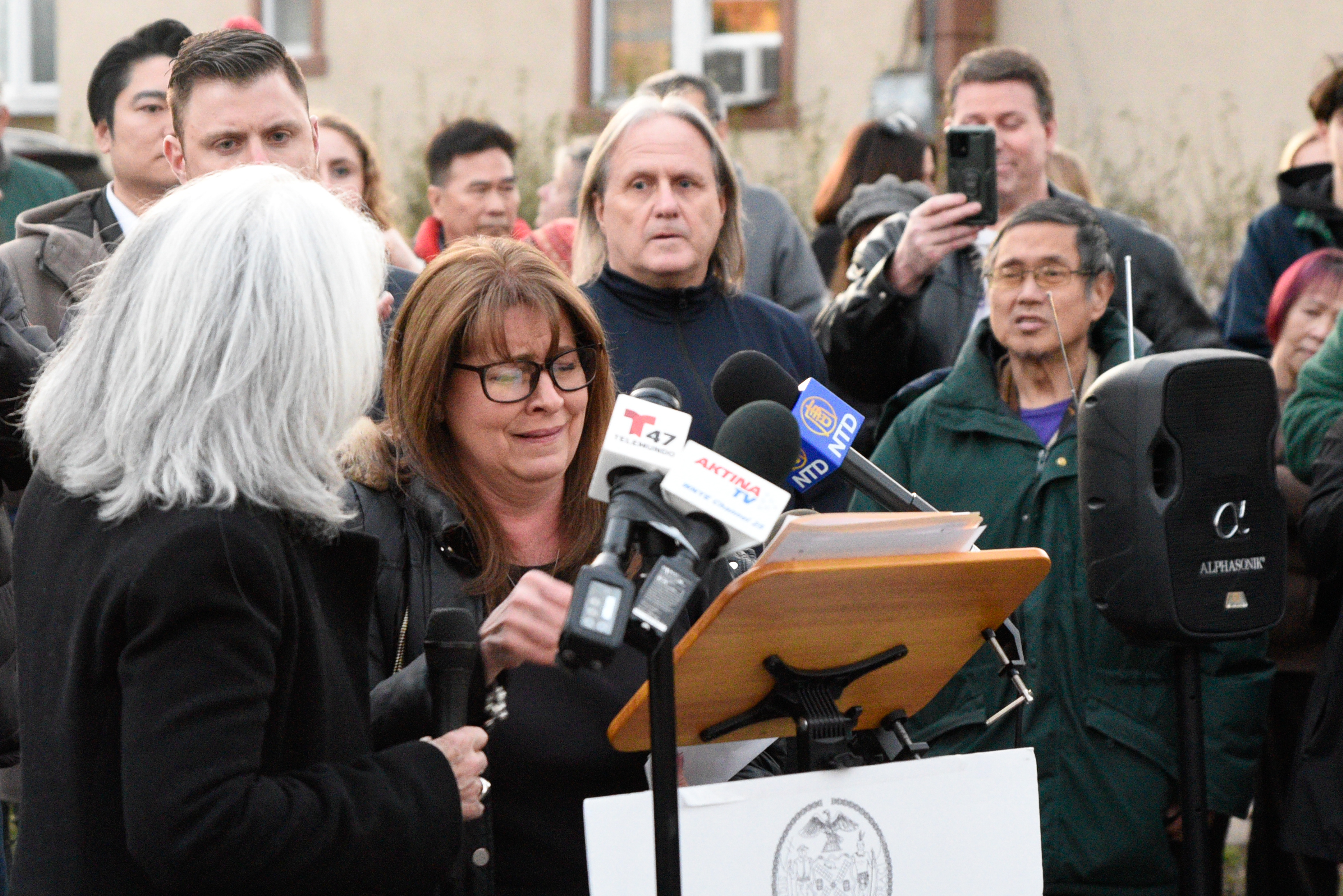
“They came to my mother’s funeral and then stopped paying the rent,” said Weir, who has been trying to sell the home since. “It’s a one bedroom apartment and they have seven people living there.”
According to Zillow, the two bedroom and two bath property was listed for sale in January 2023 for $1,208,000, and less than two weeks later was marked pending sale. For a home to be sold, it needs to be vacant upon inspection or else the sale cannot go through.
As the large crowd chanted in support of Weir outside the home, and listened to elected officials and homeowners affected by squatters speak, the lights were on in the house indicating the squatters were home.
Paladino also invited one Queens landlord, Hong Chen, to share his story about how it took him two years in court to evict nonpaying tenants. He said that over that period, the tenants only paid one month of rent.
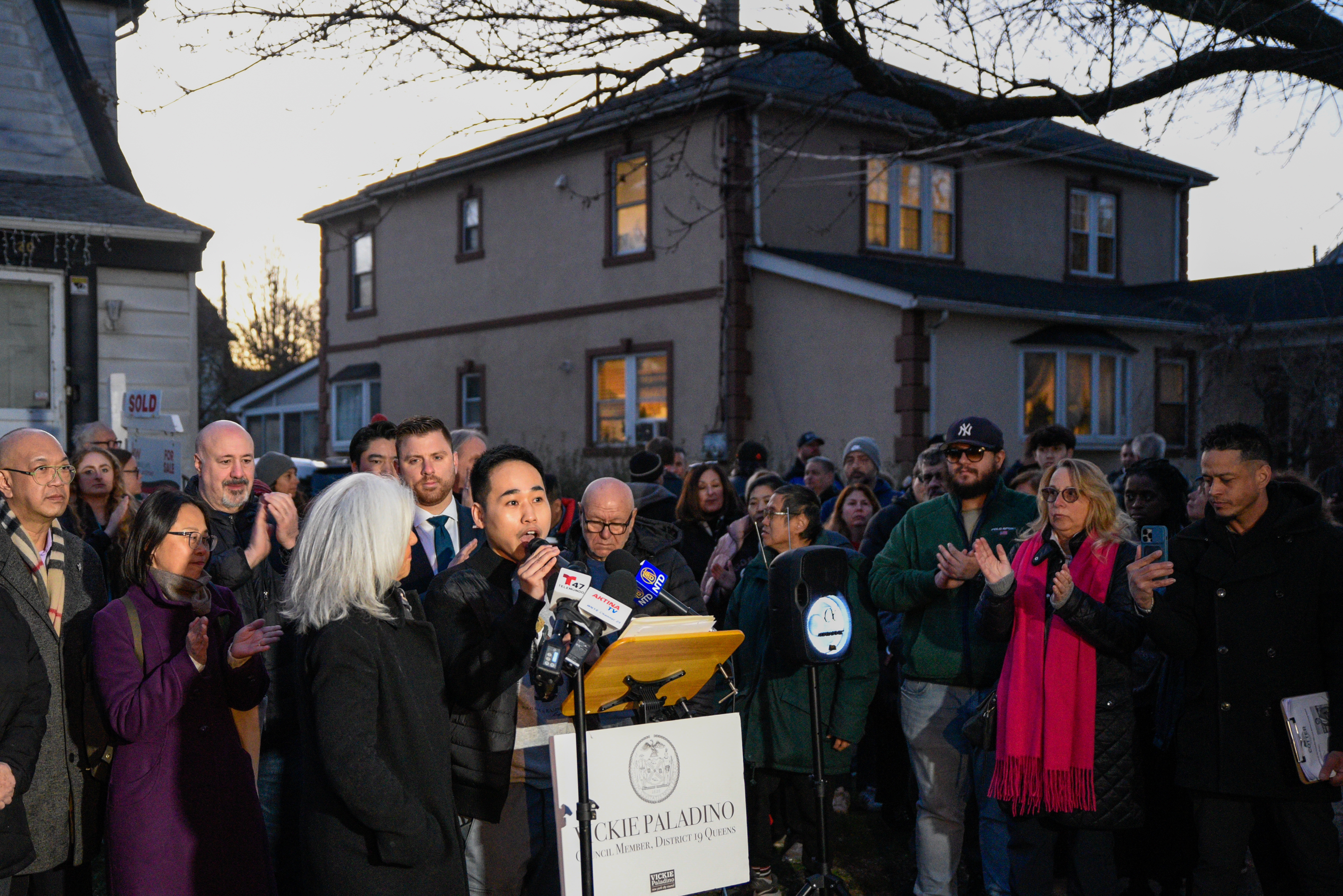
But due to the legal protections that tenants have, he was unable to get them to vacate his property. His lawyer told him changing the locks would amount to an illegal eviction, and police backed up the tenants.
“I was so shocked. Why as a legal property owner I’m getting questioned, and as an illegal squatter in my house they are allowed to stay,” said Chen.
Only after Con Edison cut off power, due to the tenants owing thousands in utility backpay, did the squatters start to move out. Chen says that he believes the current 30-day law lacks “common sense,” and wished the laws were fairer to landlords.
In Flushing, one homeowner who struggled to get squatters to leave a home that she also inherited and was trying to sell, was arrested after changing the locks. Paladino noted that while the laws and arrest were “backwards,” police officers had to make the arrest.
“These are crimes of opportunity,” added Paladino, who called on other elected officials to support changes to the law to prevent squatters from protections by the law.
Currently there is a bill in the early stages in Albany that is seeking to extend the time period for tenancy rights to 45 days, while also clarifying the definition of “tenant” to exclude squatters. If passed, it would also add squatting to the definition of criminal trespass in the third degree.
Council Member Kristy Marmorato, who represents northeast Bronx, was also invited to the rally by Paladino to express support for changes to the law.
“It’s just a matter of time before it starts happening in the Bronx, in my district, and then throughout the rest of the city,” said Marmorato, who is the only Republican to represent the Bronx in the City Council. “These squatters are a complete nuisance in our community. They’re a burden to the homeowners, and they are risking public safety.”
Paladino reinforced that this is a bipartisan issue and encouraged elected officials from both sides to find a middle ground solution to the squatter issue.

